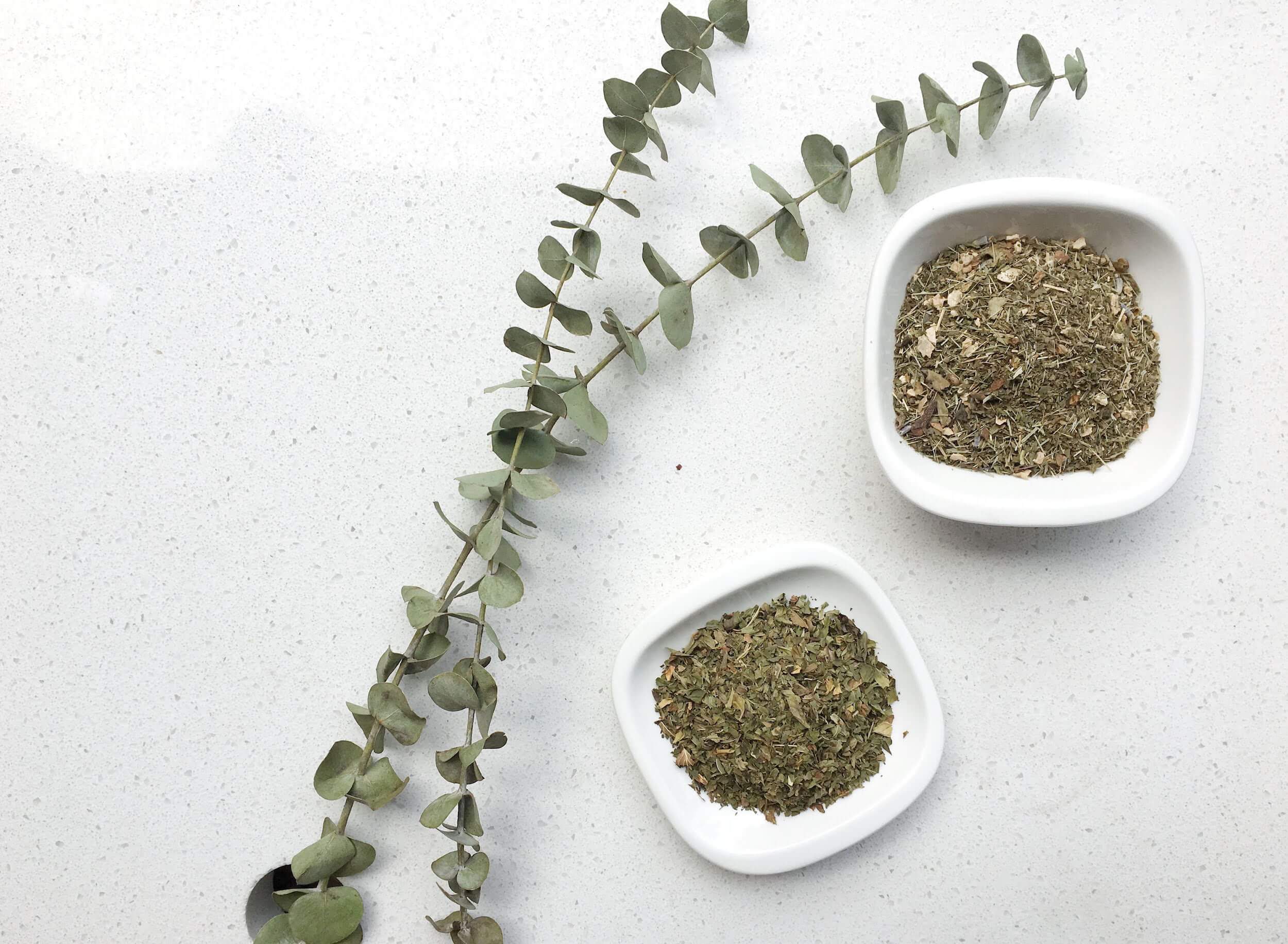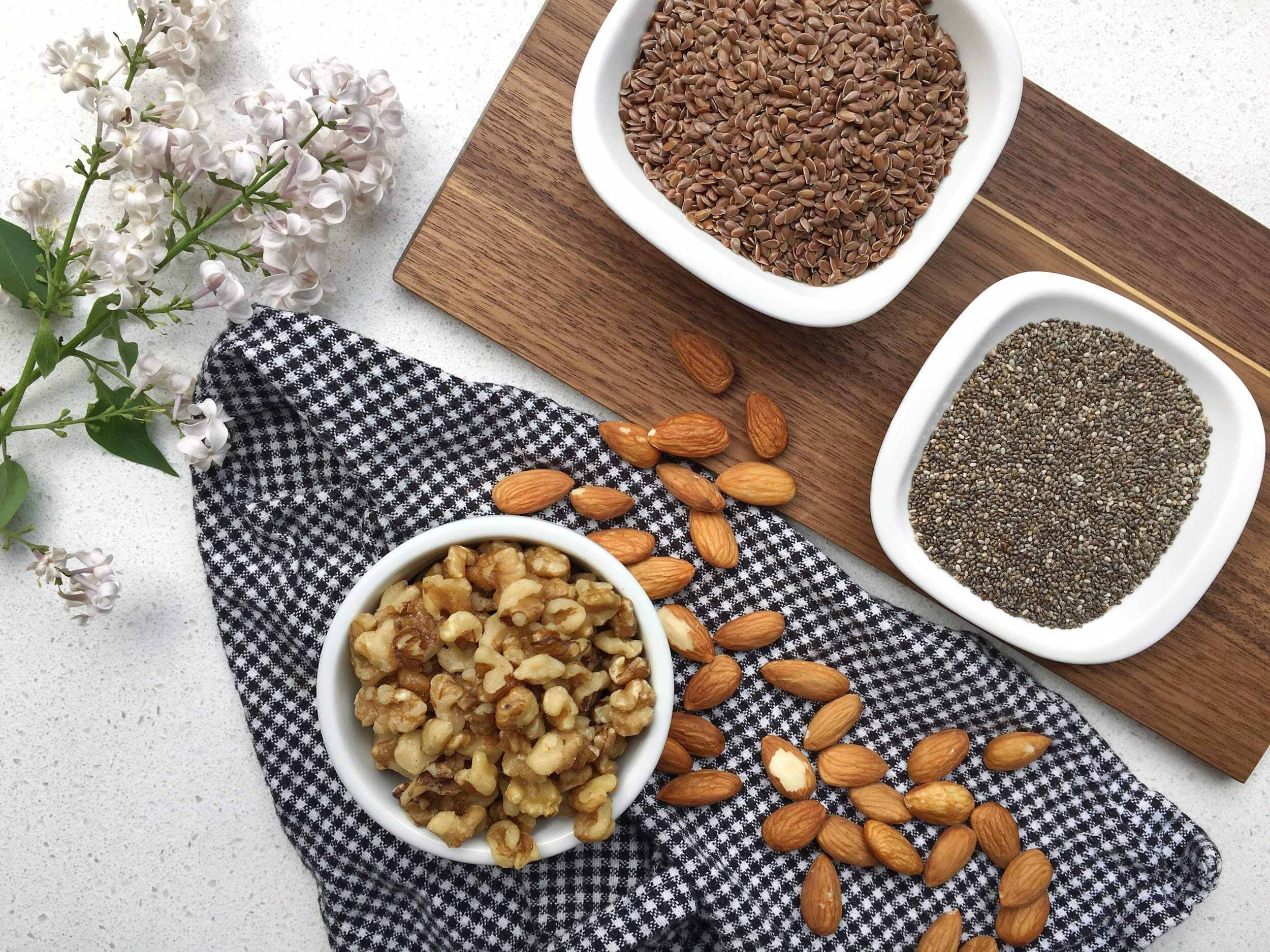Welcome to thoughtful, organic beauty
Hello Joyous is an organic, plant-based, sustainable beauty brand here to bring more joy to your day.
As a Holistic Nutritionist, I focus on hormones, because simply put, the majority of women (and men) have very imbalanced hormones. Sadly, Polycystic Ovarian Syndrome (PCOS) is a condition I see far too often in my practice. Polycystic Ovarian Syndrome is a condition many women suffer from and has many causes including stress, poor diet, genetic predisposition and conventional skincare and beauty products which cause hormone disruption.
Luckily, there are things you can do to help manage PCOS symptoms and potentially even reverse PCOS naturally! The tips that I am going to share below are tactics that I use with many of my clients and have been shown to be very effective given that they are scientifically proven, researched strategies! PCOS can be a tricky area to navigate as there is a lot of conflicting information out there, but hopefully these tips will help you feel confident and in control of your health.
What is PCOS?
PCOS, also known as Polycystic Ovarian Syndrome, is a condition that affects around 20% of women in North America, usually during childbearing years. PCOS is characterized by male pattern hair growth (like those pesky chin and upper lip hairs and coarse hair around the belly button), amenorrhea, acne, weight gain, and even difficulty getting pregnant. PCOS can also be characterized by ovarian cysts, but that isn’t necessarily true for everyone.
Women with PCOS generally have hormones that are imbalanced, with high levels of testosterone and topsy-turvy blood sugar levels.
How can you heal or reduce PCOS symptoms?
There are many options that you can explore, but ultimately it's about figuring out what works best for you!
In terms of conventional medicine, Metformin is usually prescribed to balance blood sugar levels and birth control is often used to increase estrogen and progesterone levels while lowering testosterone.
The problem with these options is that they are band-aid solutions.
They are not solving the root cause of the issue so if you ever choose to stop using these medications, PCOS symptoms will most likely return and may be worse than before starting these medications.
Alternative healthcare options will vary based on symptoms and which hormones are elevated. PCOS is often rooted in high amounts of stress, eating the wrong diet for your body, and imbalanced hormone levels. That being said, symptoms can be drastically reduced by balancing blood sugar levels, reducing stress , using specific supplements, and eating a fiber and healthy fat-rich diet with moderate amounts of complex carbohydrates.
Top 5 Tips To Reduce PCOS Symptoms
1. Ditch the Sugar
By ditching the sugar and eating a blood sugar balancing diet, you’ll be eating to support healthy, balanced hormones, which in turn, will help you control the cravings, stop “ hanger ” in its tracks, and reduce your PCOS symptoms (including weight gain).
Why is that? Well let's look into things a bit more scientifically! Insulin is the hormone responsible for regulating our blood sugar levels. When everything is working optimally, your insulin levels should increase then gradually decrease. However, when we consume foods that are high in sugar like a bowl of Frosted Flakes, our insulin levels increase very quickly and then rapidly decrease, resulting in a “sugar crash” or that mid-morning hanger that has everyone running away from you!
Unbalanced insulin levels lead to imbalanced hormones and excess cortisol (our stress hormone) which leads to weight gain and worsened PCOS symptoms. In other words – no bueno!

A blood sugar balancing diet means the majority of your diet will be made up of protein and fat. It might look something like this (or the above photo):
You can find more blood sugar balancing ideas in my Free 5-Day Sugar-Free Challenge!
2. Reduce Stress
Cortisol is our stress hormone. It is regulated by the adrenal glands which sit right on top of the kidneys. These glands control many of our hormones, but when we are in a constant state of stress and the adrenal glands are constantly pumping out cortisol, they get tired and sluggish. It’s like if you’re running a marathon, but you haven’t trained for it; your body can’t keep up and you burn out by the fifth kilometre.
It's also worth noting that insulin (our blood sugar hormone) and cortisol are best friends – they do everything together! So, when our insulin levels are elevated for a prolonged period of time (like in the case of PCOS), cortisol levels also increase, resulting in worsened PCOS symptoms.
One very simple way to reduce cortisol (and stress) levels quickly is meditation or deep breathing. Just 5 minutes of meditation inhibits the release of cortisol and floods the brain with our happy and mood-regulating hormones – dopamine and serotonin!
3. Use "PCOS Power Plants"
There is an enzyme called 5-Alpha-Reductase which can convert testosterone into a more potent and dangerous counterpart dihydrotestosterone (DHT). For this reason, women with PCOS have been found to have more DHT circulating through their bodies. Interestingly, DHT is also the hormone responsible for enlarged prostate in men.
Thankfully, there are many plants and herbs that you can make use of to inhibit this hormonal conversion, which can help to reduce symptoms of PCOS. When using herbs to help with PCOS symptoms, I highly recommend working with a natural health care practitioner to help you find the best herbs for your body.

These are some of the most researched and most effective herbs that I often recommend to clients:
• Green Tea: helps to decrease blood sugar levels and has also been shown to decrease free testosterone levels in women. Green tea is also a wonderful source of antioxidants, specifically polyphenols, which are also anti-inflammatory.
• Peppermint Tea: has been shown to help to decrease free and total testosterone levels in the body, but also has been shown to increase luteinizing hormone and follicle stimulating hormone and estradiol (a form of estrogen). By increasing these hormones, you are supporting your body to regulate menstruation and ovulation.
• Reishi Mushrooms: have an anti-androgen effect in the body, which means that they inhibit the conversion of testosterone to DHT by reducing levels of 5-Alpha Reductase.
• Zinc: although zinc is a mineral (rather than a plant or herb), it’s shown to have incredible effects for women with PCOS. Women with PCOS tend to be deficient in zinc and have lower serum blood levels of zinc. This important mineral is also depleted by the birth control pill (which, if you remember, is often prescribed to women with PCOS). Zinc helps to regulate blood sugar levels and also inhibits the conversion of testosterone to DHT (just like reishi mushrooms) and is anti-inflammatory to boot!
4. Fuel with Fat
Your body needs dietary fats to function – plain and simple! Fats promote healthy cell membrane fluidity meaning they help our cells function, but from a PCOS-perspective, they are essential for hormone production.
All of our steroid hormones, like estrogen, progesterone, and testosterone require fats to be produced (specifically cholesterol).
Without healthy fats in our diet, we see less balanced hormones and worsened PCOS symptoms.
Fats are also required for optimal absorption of certain vitamins, these vitamins are called “fat-soluble vitamins”. Vitamins A, D, E, and K require a fat in order for them to be properly absorbed by the body. Healthy fat intake also improves brain health and improves metabolism, helping to lose that unwanted weight.
My favourite sources of healthy fats are:
• Avocados
• Coconut
• Extra Virgin Olive Oil
• Nuts and Seeds
5. Feed the Gut with Fiber

Fiber is key for proper detoxification and helps the body to eliminate excess hormones, waste, and toxins. All of these things could be contributing to your PCOS, so increasing the amount of fiber you're getting into your diet can actually help a lot.
Fiber also helps to lower insulin levels and feeds the good bacteria in our gut. Why does this matter? Because research has shown that women with PCOS often have more bad bacteria than good bacteria in their microbiome , contributing to high testosterone levels and weight gain.
By incorporating these foods into your diet, you can incorporate more fiber into your diet effortlessly!
● Nuts and Seeds (like flax, chia, almonds)
● Berries
● Avocado
● Coconut
What to do next
These tips may sound complicated or overwhelming, but simply start with one thing at a time. First try increasing your water intake, then try ditching processed sugar, so on and so forth. Set manageable, realistic goals for yourself. Small lasting changes have a huge impact!
If you would like a more personalized strategy and someone in your corner to help you manage and deal with your Polycystic Ovarian Syndrome, I would recommend booking a consultation with your natural health care practitioner.
Eggs are a really bad recommendation for someone with pCOS. They will make it worse.
ReplyHi Kristi!
They could be bad if you have a sensitivity to them. Is that what you are referring to? Otherwise, they are a perfectly healthy food :)
This was a great read. Lots of useful suggestions. Thank you!
ReplyGlad to hear it Taran!